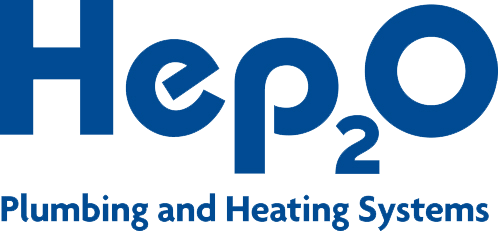Back
Surviving a Black Swan Event in the Construction Industry
Surviving a Black Swan event requires clear strategy, strong brands and smart decision-making, especially in the construction and building products industry during the Covid-19 disruption. GGP Magazine catches up with industry expert Andrew Scott to discuss.

A ‘Black Swan event’ is a phrase coined by Wall Street trader and finance professor Nassim Taleb to characterise an event so rare that it is beyond reasonable expectation and has a potentially catastrophic impact.
Experts are pointing to the coronavirus pandemic as a potential once-in-a-lifetime Black Swan event. While every government’s priority has been the welfare of its people, the economic impact of Covid-19 is likely to last for years, with Lloyds Banking Group announcing on 30th April that the UK economy could shrink by as much as 7.8% this year.
So, what is the outlook for the construction industry, and how can companies respond given so many unknowns?
Economic comparisons
We have never faced a pandemic of this nature; however, the industry has been through several recessions, including the early ‘90s and the ‘great recession’ of 2007 – 2009. While previous recessions had a clear root cause in banking and fiscal policies, there is no such contributor to the current crisis, which means we are in ‘unknown territory’.

It’s important to note that recessions don’t impact all industries in the same way. Aviation, travel and hospitality have been severely affected, with British Airways, Boeing and Rolls-Royce already making large-scale redundancies. However, the outlook is more positive for the home improvement sector.
With families on lockdown for weeks at a time, homeowners have had more time to think about their homes. And with holiday and travel plans uncertain, adding more space or improving their home may be the preferred option in the months ahead. Garden-related home improvements, such as garden rooms and hot tubs, are likely to see an upturn.
It’s not all plain sailing, though. The spectre of recession reduces consumer confidence, and homeowners will be more cautious about spending money and more selective on who they spend it with.
As a result, the companies that remain visible and have a strong brand and reputation will fare better than others. According to BrandZ, the world’s leading authority on tracking global brands, companies with the strongest brands perform better and recover much faster from recession as customers gravitate towards brands they trust.
Meanwhile, the Harvard Business Review reports that companies that increase their marketing activity during a downturn capture market share from weaker rivals (and at a lower cost), thereby boosting financial performance.
A new Business Plan?
Many companies will want to review their business strategy and forecasts. Taking a measured, 12-month view is essential. Knee-jerk reactions or ‘battening down the hatches’ could do more harm than good.
A recession typically means a reduction in competition as some firms scale back or bury their heads in the sand, while others sadly collapse. According to Insight Data, over 1,000 fabricators and installers had ‘high-risk’ credit scores before the pandemic struck, and without financial resources, their situation can only worsen.
The evidence suggests that even with a recession, the home improvement market will be less affected than many other sectors, and with less competition, the companies that adopt a pragmatic view, invest in their brand and take an offensive position will gain market share.
Of course, that doesn’t mean companies shouldn’t adapt. While the 2007 – 2009 recession was a liquidity and credit crisis, this recession will be characterised by a shift in behaviour and attitudes. Some form of social distancing is likely to be with us until a vaccine is found, and companies must adapt their business model to meet changing customer expectations.

Technology has a major role to play, but again, companies should avoid costly knee-jerk reactions that could cause more damage in the long run. From a marketing perspective, moving all activity online may be the right decision today, but as lockdown eases, a digital-only strategy is a dangerous game. Few brands are built solely online, which is why Amazon is one of the biggest advertisers on terrestrial TV. And it’s no surprise that magazine.co.uk has reported a 403% rise in demand for subscriptions to home and garden print magazines during lockdown.
What does the future of the industry look like? I am quietly optimistic. I expect to see significant M&A activity, and sadly, some companies will vanish, but this makes room for others to capture market share. How we operate as an industry will change, and the speed of diversification will increase. The bottom line is that companies will need to work harder and smarter for their customers.

About the Author – Martyn East
I wrote this piece to help build products and construction businesses respond to a Black Swan event without panic decisions. I work on SEO and content at Purplex, focusing on practical changes that improve search visibility, brand trust, and lead flow when conditions shift. If you want help turning strategy into measurable action, take a look at our SEO services.
Connect with me on LinkedIn or read more of my posts: Martyn East.
Want a plan for the next market shock?
If you want to stay visible and protect enquiries during a Black Swan event, we can help you tighten your messaging, prioritise the right channels, and track what is working. Start with our contact page, email grow@purplexmarketing.com, or call 01934 808132. You can also explore our services: Marketing Consultancy, Web Design, E-commerce, PR & Communications, SEO, PPC, Filming & Video Production, Social Media, Design & Branding, and LeadTracker.
You might also like to read
If this Black Swan event article helped, these related posts expand on how to stay visible, keep confidence high, and avoid knee-jerk marketing decisions.
- ‘Marketing during uncertain times’ webinar review – Key priorities when demand drops and competitors pull back.
- Handling a crisis: Is it Fight or Flight? – How to keep your marketing moving while your business adapts.
- Survive and thrive during a business crisis in 2026 – Practical actions to protect pipeline, trust, and recovery speed.
- Why home improvement marketing is essential during economic uncertainty – Why consistent marketing keeps enquiries coming in when buyers slow down.
This entry was posted in Marketing Strategy, Purplex News





